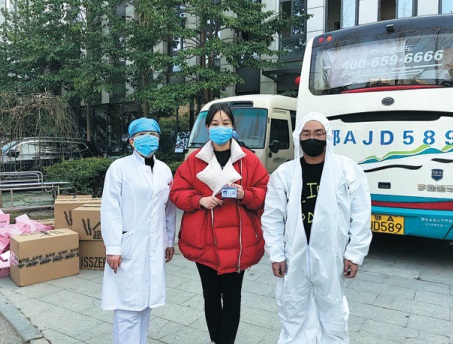Volunteer drivers show bravery on front line
Team effort helps take medical professionals to work


"Our motorcade workers have transported these medical professionals about 1,000 times. It's convenient and comfortable for them to go to work by car, which gives them more time to rest and save energy for work," Huang said.
He added that those who cannot afford to buy a car, especially young nurses, have had to walk or cycle for one or two hours from home to hospitals. Rain on recent days has made commuting to work more difficult.
Huang rises at 6:15 am and takes some bread to eat in his car. He drinks little water, as it can be difficult to find a public toilet, and braves the early-morning chill to open the vehicle's windows for ventilation.
"My gloves are soaked in sweat, but when the wind blows, they are soon dry and are as cold as iron. I'm exhausted when I come home at night," he said.
He only chats with a passenger when he stops at a red light, because when he is driving it can be difficult to hear one another due to the noise of the wind.
He once asked a nurse what she most wanted to do when the outbreak is over, and she said she only desired a long sleep and to drink plenty of water.
- Doctor injects child with improperly stored drug at Chongqing hospital
- Xi's special envoy attends forum dedicated to Intl Year of Peace and Trust in Turkmenistan
- Memorial ceremony remembers victims of Nanjing Massacre
- Louvre's largest showcase in China goes on display at Museum of Art Pudong in Shanghai
- Indonesian foundation to fund students, school administrators to exchange and study in Tianjin
- Archives detailing crimes of Japanese unit released





































